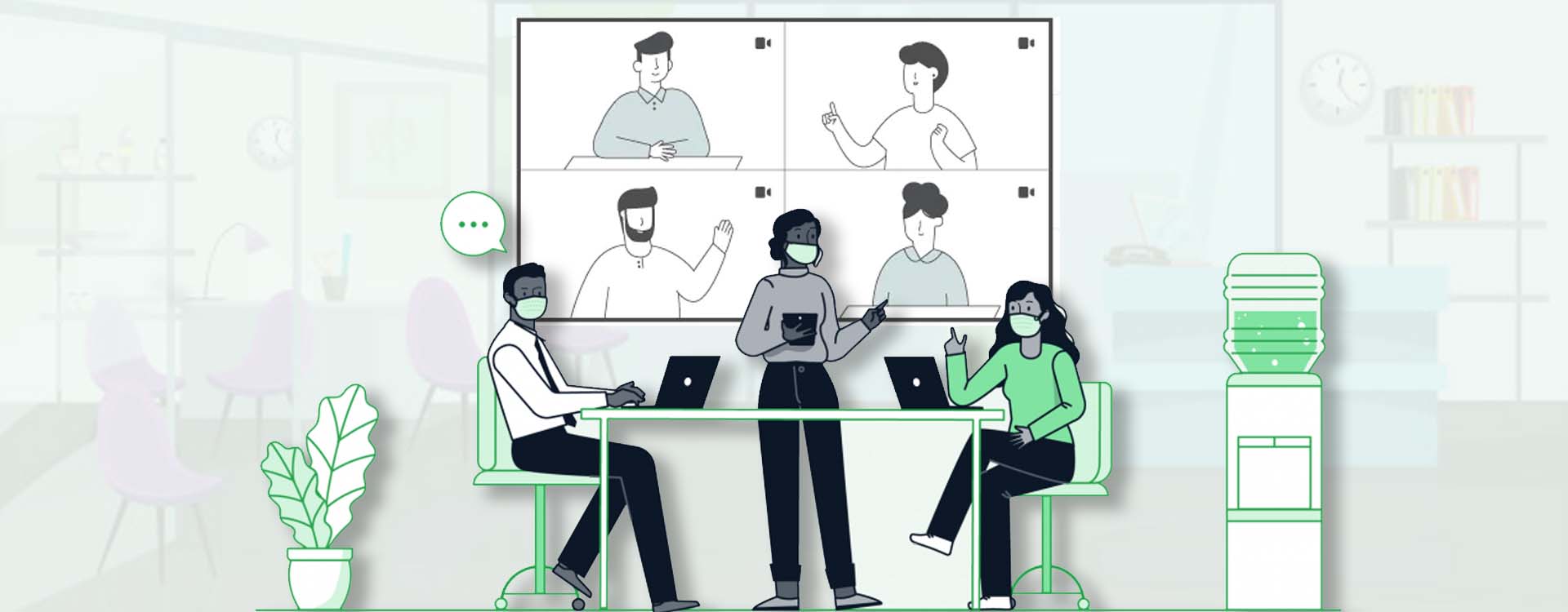Many of us have been working from home for close to two years now. Employees that cannot afford staying at home are doing quick runs to the workplace to sort things out before returning to work from home when the need doesn’t arise. Also, to reduce their risk of infection, other employees are delegated to fill in for them when a mandatory in-office presence is required. This is what a hybrid workplace looks like and companies are adopting this work model at a rapid pace.
What is a Hybrid workplace?
A hybrid workplace has been around but has come to the fore only recently. Unlike a traditional office setting, a hybrid workplace supports a more flexible mode of work among the workforce of an enterprise. It supports both remote working as well as in-office working in a way that employees can switch or choose their work mode to suit requirements. It’s a business model that works on a pre agreed arrangement where employees can pivot much quicker in case of emergencies.
How the pandemic has fuelled its adoption
Return to work has turned out to be a mere theory as the possibility of returning to the old way of working is now history. Since the long-term effects of the pandemic are still unknown, adopting a hybrid business model looks like the only right direction to move for businesses. Due to the pandemic, businesses are prioritising the needs of employees. And flexibility is one such need. Also, companies had no choice but to cut down on unnecessary travel which has fuelled the adoption of the hybrid workplace.
Are we moving towards a hybrid workplace?
Everything is achieved through virtual connect
Earlier, creative brainstorming was possible only through physical face-to-face meetings. However, with the level of sophistication available in collaboration tools, you can achieve a level of team connect that’s much more efficient. Employees are quickly developing the skill sets required to permanently communicate virtually. This points out that we are slowly but surely moving towards a hybrid workplace.
Companies cannot risk becoming irrelevant
The pace at which new technologies are emerging is increasingly rapid. In this scenario, there is a higher risk for organisations, especially start-ups, to be irrelevant if they stick to the old ways of working or nurture the status quo. This fear of being irrelevant is making companies adopt the hybrid work model more implying that the future work will be hybrid.
Prioritising both business and employee health
There has been a clear shift towards prioritising both business as well as employee health among organisations. They are unknowingly making the transition to a hybrid work setting because prioritising employee well being is fostering business health and vice versa. Businesses have also found that reskilling employees to get them adjusted to the hybrid work model has its many benefits in terms of productivity and efficiency. Companies are also investing in employee experience platforms which are providing great results. All of this indicates that a hybrid work model is emerging as a viable business model.
‘‘
This fear of being irrelevant is making companies adopt the hybrid work model more implying that the future work will be hybrid.
What’s in it for me?
When employees work from different locations, there are many factors to consider like security and governance. Hybrid working brings in the risk of internal and external threats. You also need a multi-pronged strategy on security and data management which should adapt to employees working from the office and at home on some days. You need to keep mitigating the risks and challenges that a hybrid work model imposes, consistently.
But by practising transparency, using appropriate collaboration tools, and adopting transparent internal communication strategies, employees will be able to make a smooth transition to a permanent hybrid work model. Also, by establishing new company policies that support the new style of working, you can improve employee experience in this setting and subsequently witness better results for your enterprise.




